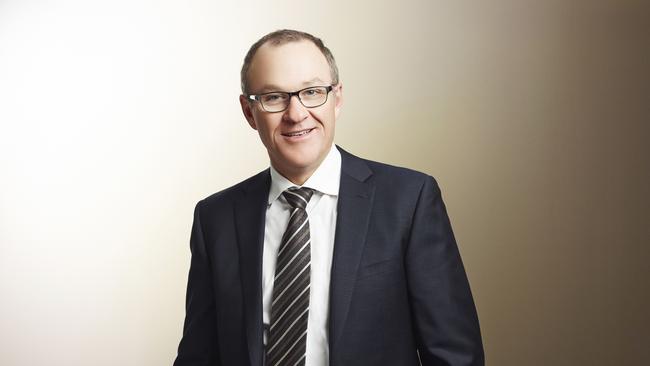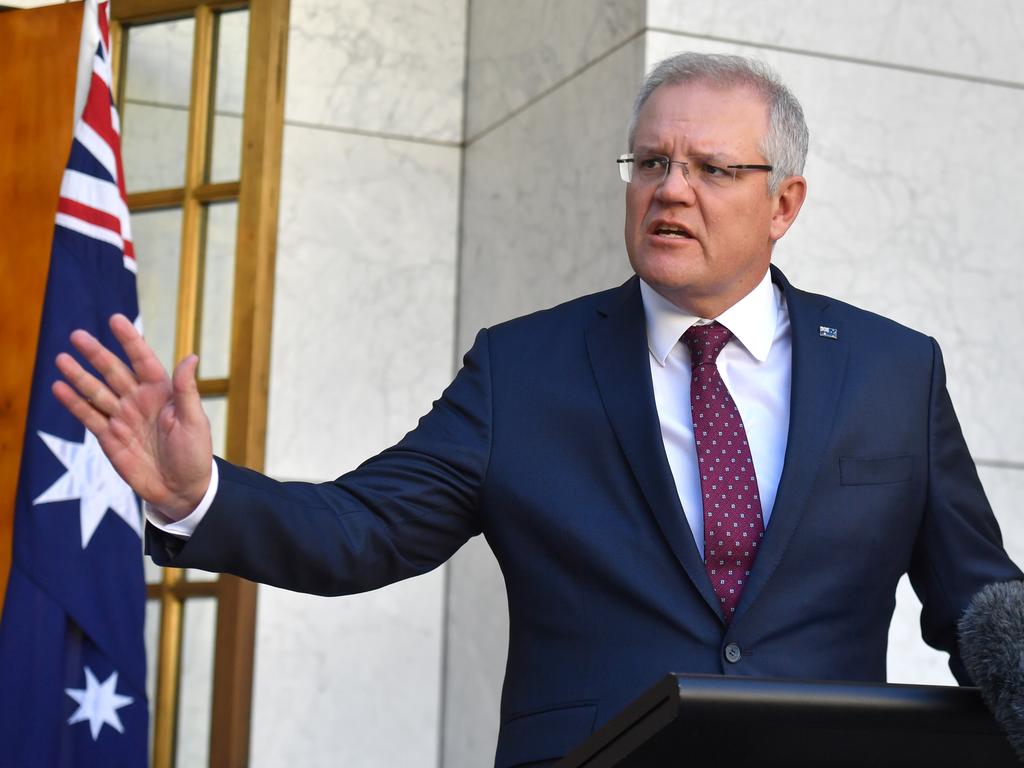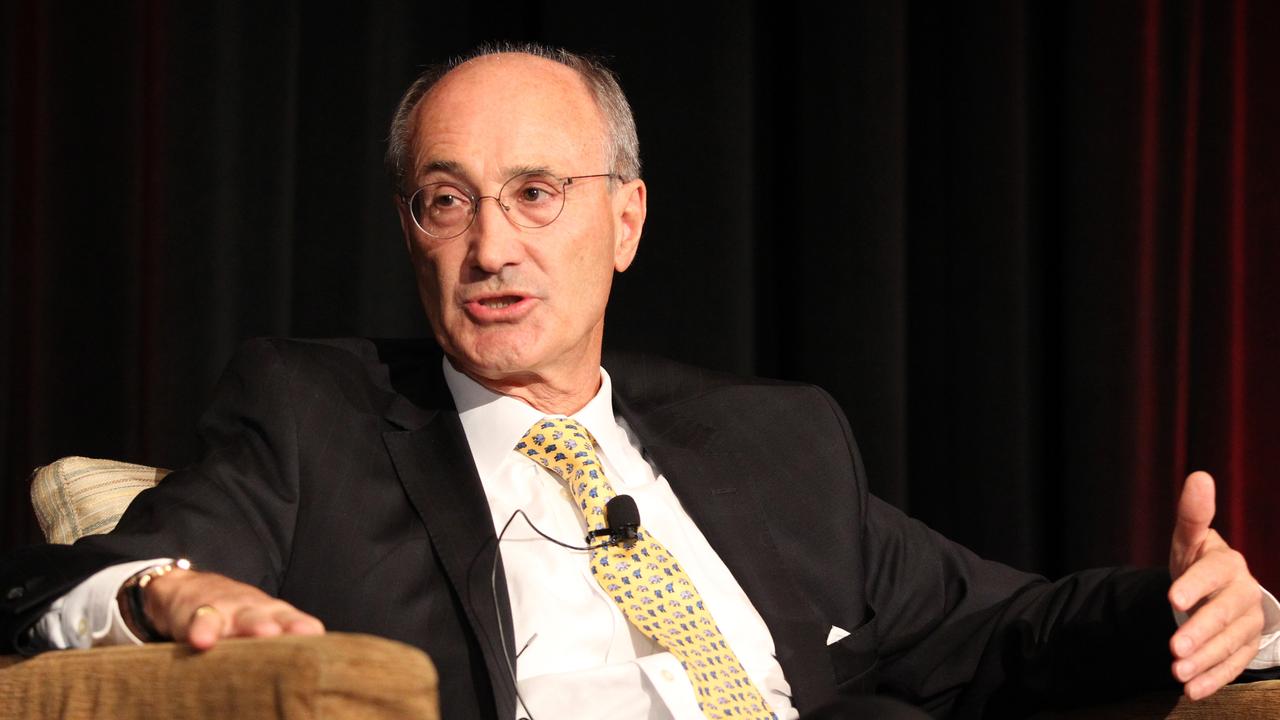PwC’s Tom Seymour warns of ‘hardest’ quarter ahead as nation comes out of lockdown
PwC boss Tom Seymour says the final three months of calendar 2020 could be the toughest the nation has ever experienced.

New PwC chief executive Tom Seymour has warned that the final three months of calendar 2020 could be the toughest the nation has ever experienced as it emerges from the coronavirus lockdown.
In a wide-ranging interview, the former tax and financial advisory partner also predicted the firm’s top corporate clients would seek to adopt more conservative global tax arrangements, would likely require less office space and were deferring more capital investments in the transition to a post COVID-19 world.
Mr Seymour said rebuilding working capital post the COVID-shutdown could prove to be impossible for a range of businesses, which would force them into administration. But he said the nation’s banks would be required to take a more “delicate” approach to insolvencies.
“Quarter four this calendar year is going to be the hardest economic quarter this country has faced maybe ever, but certainly in 100 years,” Mr Seymour told The Australian.
“One way or the other you are going to have less government support in the system. Banks and utilities will be starting to say, ‘we are going to bring customers off hibernation arrangements’. And as businesses start up again — this is a big sleeper — you need to build your working capital up again to get going.
“Thousands of business have spent their working capital in the shutdown to survive. To start up again is expensive and they won’t get terms from any of their suppliers because they are also struggling. Cashflow is why businesses fail.”
He said it was inevitable more businesses would put themselves into administration to restructure and “hopefully come out of it” post-pandemic. PwC owns the PPB Advisory insolvency firm.
“There will be a delicacy of how the banks work with that group and their administrators in a way that will have to be different to the way they have in the past,’’ he said.
As of Friday more than $236bn worth of business and housing loans had been deferred across the nation’s banking sector. Repayments on 214,000 business loans have been delayed for six months for customers facing hardship as a result of the COVID-19 lockdown.
Australian Prudential Regulation Authority chair Wayne Byres last month warned that some customers may never be able to repay their loans.
Mr Seymour, who has been the managing partner of PwC’s Financial Advisory business for the past four years and served on the executive board for eight years before he was elected chief executive earlier this year, said a recent survey of the firm showed only 10 per cent of staff wanted to return to working in the office full time.
Another 10 per cent said they never want to return to the office.
“If I could sign a lease today to take more space on Monday and Friday and less on Tuesday, Wednesday and Thursday, I would do it in a heart beat,’’ he said, claiming staff would be more prepared to go to the office at the beginning and end of each week.
He said among PwC’s bigger clients there was emerging evidence they were preparing to reduce office space. “If you ask me what sentiment we are hearing right now, it is absolutely less space going forward,’’ he said, noting workers doing production-based work would be less likely to be required in the office.
“If we are still sitting here at Christmas working like this, if no vaccine or cure is found, that sentiment is going to get stronger and stronger.”
Mr Seymour was previously the managing partner for tax and legal after being admitted to the partnership in 2002.
PwC, which has the nation’s biggest tax advisory practice, has come under repeated scrutiny in recent years from the Australian Taxation Office for its tax advice.
Mr Seymour said as borders reopened, there would be increased regularly scrutiny of internationally owned corporations — particularly those registered in tax havens — amid the increasing complexity of multinational taxation.
“There is definitely a much lower risk appetite in businesses on this. Companies don’t want to be seen to pushing it too hard because of their brand and social licence,’’ he said.
“The vast majority of clients will want pre-approval sign-off from governments. What you don’t want is uncertainty. For things within your control, you want to take uncertainty off the table.”
He said the COVID pandemic would only accelerate the move to a more nationalistic world that was already happening prior to the virus outbreak, which would force corporations to review their supply chains. Many company strategy documents were now considering moving to a more flexible supply chain, he said, but few had actually implemented the change.
“A lot of people are stuck in the uncertainty at the moment. If you had a big plan for capital investment, we are seeing that pulled back and deferred,’’ Mr Seymour said. However, this will provide an opportunity for multinationals investigating where they might locate regional operations in the wake of the pandemic.
“An opportunity for Australia is that Singapore and Hong Kong have been the hubs of multinationals to grow their Asian businesses. (With the travel bans) Australia could pick up a lot of that because we are a safer, cleaner society. There is a real opportunity,’’ he said.
PwC will review its working arrangements in the next fortnight to decide if it needs to undertake a more fundamental restructure of its workforce or whether it can persevere with three-quarters working at 80 per cent of their normal capacity. PwC took the unusual decision to move three-quarters of its 8000-strong workforce to a four-day working week from the start of last month, with a corresponding reduction in pay. Those that remained on full hours and full pay were mainly in the audit and assurance business.
Its 700 partners saw their income fall by 20 per cent from March 1 and that will be further reduced by 30 to 40 per cent from the new financial year.
Mr Seymour agreed the four-day week was unusual and “far from perfect” but said it was the fairest approach. “We felt it was fairer to reflect that if you are working full time and we are recovering as a business as a result of your efforts, we pay you 100 per cent. The flip side of that it is a lot harder and more complex to implement,’’ he said.
PwC, which reopened its offices to staff last week, would review the arrangements in two weeks. “I reckon we have got it 90 per cent right,’’ he said. “Every CEO I am talking to, FY21 is the hardest year to predict from a budget perspective. The big thing we are looking at is do you keep (the existing arrangements) going or go to a more fundamental restructure and reduce headcount?”







